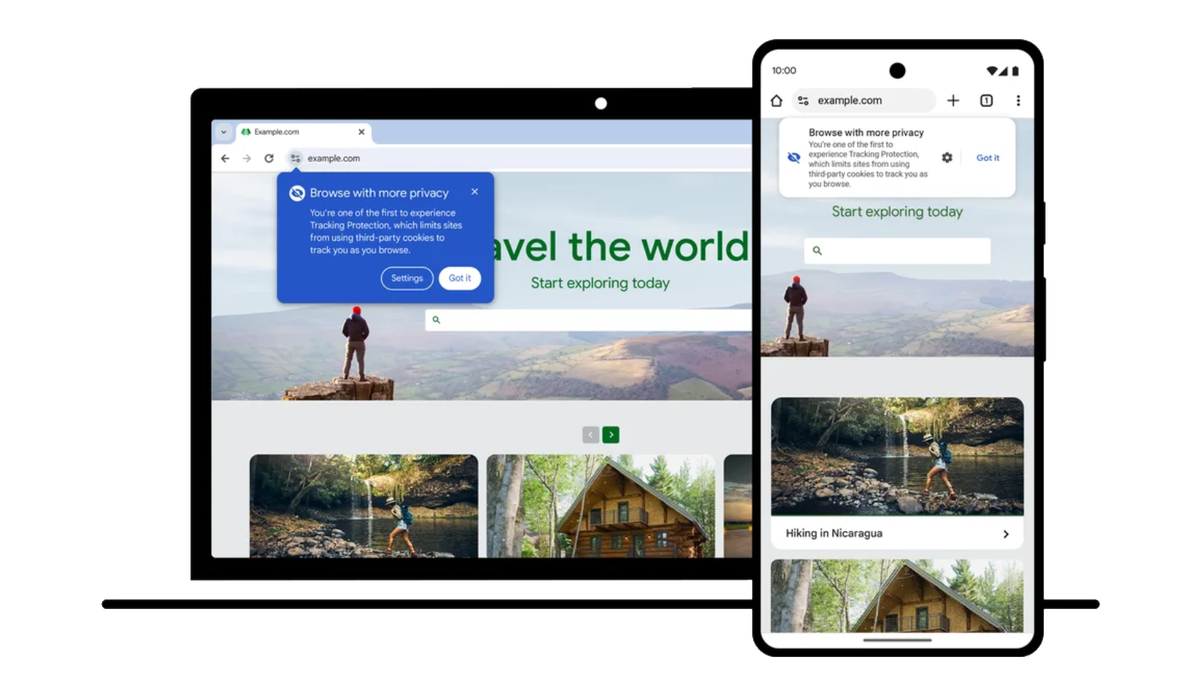
Chrome this week announced Tracking Protection, a new feature that limits cross-site tracking and marks a significant milestone in the company's plan to phase out third-party cookies by the second half of 2024.
Third-party cookies, while instrumental in supporting online experiences like logging in and displaying relevant ads, have also raised concerns about user privacy. With Tracking Protection, Chrome is taking a proactive approach to address these concerns and empower users to control how their data is tracked across different websites.
Starting January 4, 2023, Chrome will begin testing Tracking Protection with a small percentage of users globally. This initial rollout will allow developers to test their websites' compatibility with a world without third-party cookies and prepare for the eventual phase-out.
If your browser is selected for the Tracking Protection trial, you will be notified upon opening Chrome. Once activated, third-party cookies will be restricted by default, limiting the ability for websites to track your activity across different domains.
If you encounter a website that experiences functionality issues due to the restriction on third-party cookies, Chrome will provide an option to temporarily re-enable them directly from the address bar. This temporary override ensures that users can access essential features and content while maintaining overall privacy protection.
As Chrome continues to refine Tracking Protection and expand its testing, marketers need to adapt their strategies to remain effective in the evolving digital landscape. This may involve exploring alternative targeting methods, such as first-party data and contextual advertising, that align with privacy-focused approaches.

